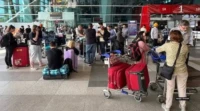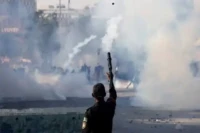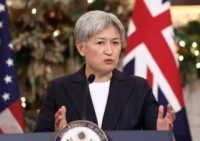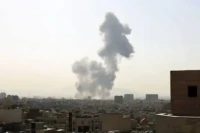In a concerning development, the U.S. government’s decision to halt funding for global HIV treatment under Donald Trump’s administration has sparked alarm, particularly for young children, the elderly, and other vulnerable individuals living with HIV. Haruna Makafin Dala, Secretary of the SafeLife Sustainable and Counseling Initiative in Kano, shared his deep concerns in an exclusive interview with DAILY POST on Friday.
Makafi, who himself benefits from free HIV medication, highlighted the confusion and fear that has gripped many patients since the funding halt. “I feel deep sympathy for young children, women, and elderly individuals who depend entirely on these free medications,” he stated. The sudden withdrawal of support has left many in a precarious situation, potentially driving them towards unverified and unsafe alternatives.
The risk, as Makafi explained, is not just in the health outcomes but in the proliferation of fake traditional medicine practitioners. These individuals claim to cure HIV with remedies that not only fail to treat the virus but can exacerbate its spread by giving patients a false sense of security. “If people are left to find treatment by themselves, it will lead to the very crisis we have been trying to prevent,” he warned.
The cessation of funding could also lead to increased stigma and discrimination, potentially pushing some to spread the virus out of desperation or frustration. Bashir Ismail, another person living with HIV, pointed out the practical implications: “The information we are receiving is that free testing and medication for new patients have been suspended, which is a major threat.” With medication stocks dwindling, the future looks uncertain for many.
A survey by SafeLife Sustainable and Counseling Initiative revealed an alarming trend: an increase in HIV infection among children in Kano State, alongside a decrease in support for orphaned children. The organization currently supports over 2,000 such children, whose parents have succumbed to HIV-related complications.
The broader implications of this funding pause were underscored by the World Health Organization (WHO), which criticized the move in a statement. WHO warned that prolonged funding cuts could reverse decades of progress, potentially catapulting the global health scenario back to the dire times of the 1980s and 1990s when HIV/AIDS claimed millions of lives annually.
The U.S. President’s Emergency Plan for AIDS Relief (PEPFAR), which has been instrumental in providing treatment to over 20 million people, including 566,000 children, now faces an uncertain future. Over the past two decades, PEPFAR has been pivotal in saving more than 26 million lives and is active in over 50 countries.
The immediate call to action is for the government to reconsider this decision to avert a public health catastrophe. Without swift intervention, the lives of the most vulnerable populations could be at severe risk, undoing years of global efforts to control and eventually eradicate HIV/AIDS.












This decision is a humanitarian disaster waiting to happen. How can we turn our backs on those in need of life-saving treatment? #SaveLives
This funding halt is unacceptable! We should prioritize saving lives over politics. Wheres the humanity in this decision? #GlobalHealthMatters
This funding halt is a disgrace! How can we turn our backs on vulnerable populations in need of HIV treatment? Unacceptable.
This funding halt is unacceptable! We need to prioritize global health and support vulnerable populations. Lives are at stake. #EndHIVNow
This decision is short-sighted and dangerous. Vulnerable populations need support, not funding cuts. Lets prioritize saving lives.
This funding halt is a disaster! We need to prioritize global health now more than ever. Lives are at stake. #SaveHIVTreatment
This decision is putting lives at risk. Why prioritize politics over human lives? Its heartbreaking and unacceptable. #SaveLivesNow